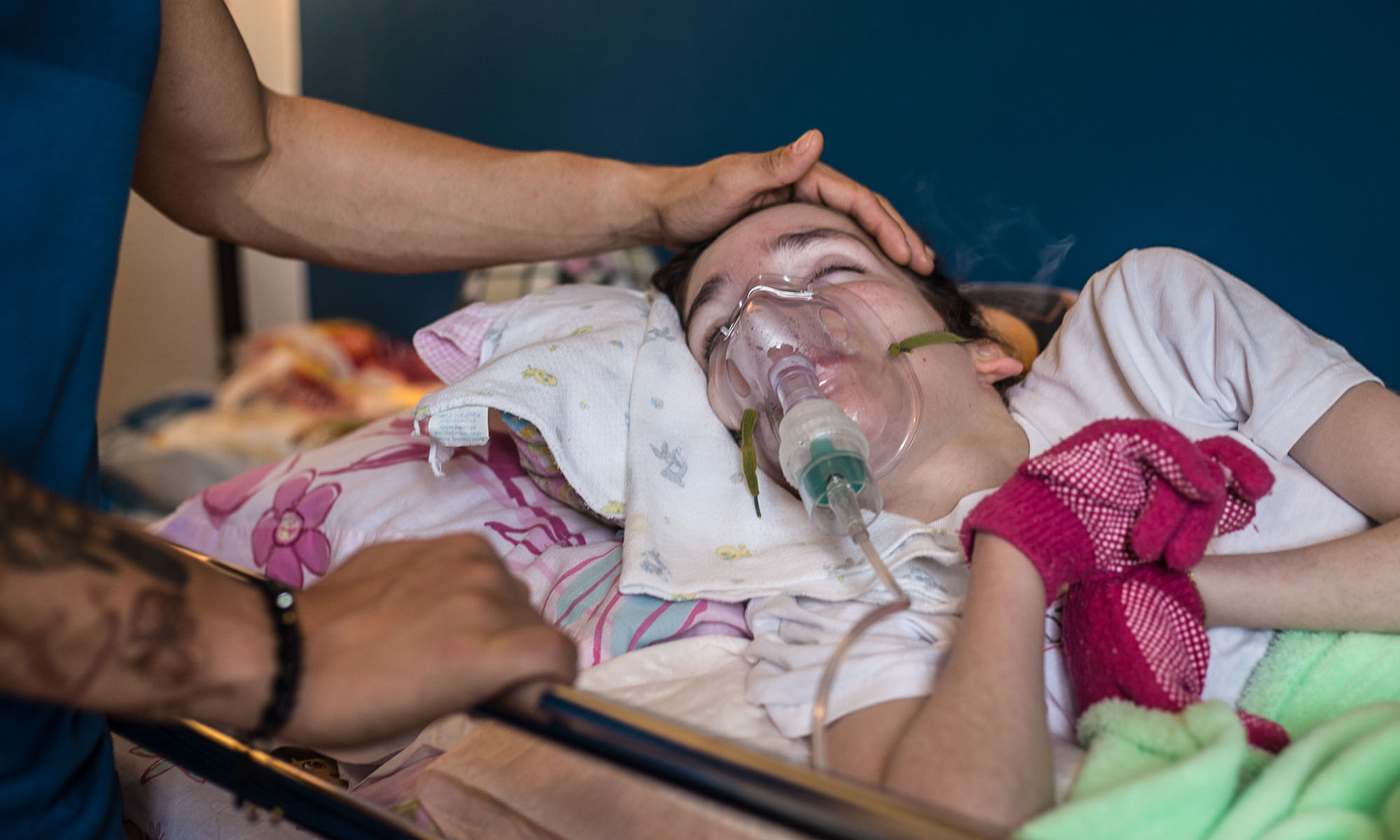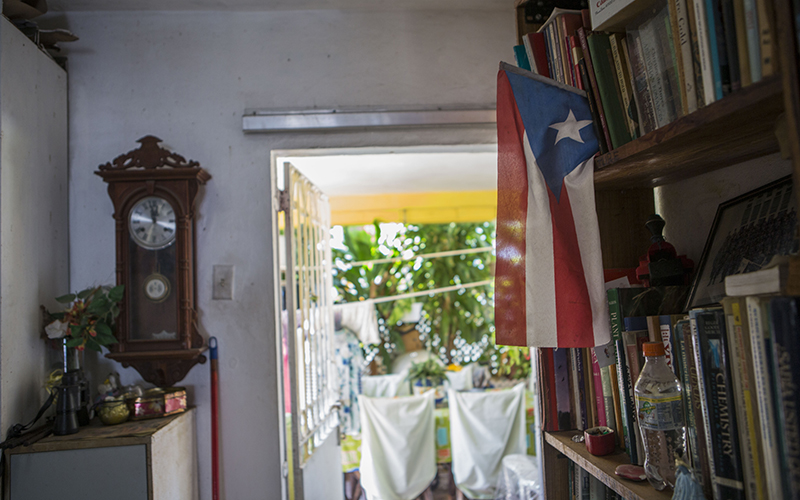
Family struggles to care for daughter in wake of Puerto Rico power outages
By Olivia Richard and Lerman Montoya/ Cronkite Borderlands Project |
CIALES, Puerto Rico – The night Hurricane Maria ravaged the island last September, Martha Rivera worried most about her daughter, Melissa.
More than seven months after the hurricane, she finally is able to sleep at night. Two weeks ago, power was restored to the family home, but with spontaneous power outages throughout the island, Melissa’s well-being is at risk.
She had worried for more than half the year that the two generators keeping her 23-year-old daughter alive would fail and Melissa would die. Melissa is bedridden, diagnosed with cerebral palsy and multiple maladies that have left her deaf, partially blind and unable to speak.
“Having power back is still surreal to me, I thank God for it every second,” Rivera said through an interpreter by telephone. “I pray that the families who are still in the darkness will get power back soon. For this I pray every day.”
The cords that keep Melissa alive are strung around the foot of her bed. The feeding tube through which her mother delivers her meals each day – a variation of chicken or turkey flavored baby food mixed with water and Enfamil – hangs with a collection of translucent tubes that run from different parts of Melissa’s body connecting her to the machines she needs to breathe. Her vital medical equipment includes a reclining motorized bed, an asthmatic nebulizer and a medical suction device used to prevent her from choking on food or liquid.
“It is a miracle that they finally got power back,” said Dr. Sally Priester, who has voluntarily assisted the family since the hurricane. “Melissa requires 24/7 care, and so for Martha to have one less thing to worry about means everything. It means there is hope for Melissa.”
The family home sits at the top of a muddy, winding road in small community located within the island’s central mountain region. When Cronkite News reporters visited the home in early March, it had no power and only a partial roof. Rivera, who painstakingly cares for her daughter, was distraught.
“My biggest fear is that I stay sleeping and when I wake up, she is not breathing anymore,” Martha Rivera said in Spanish. “That is why I don’t sleep. I don’t sleep because that brings me fear; that I get up and see she’s not breathing.”
Families across Puerto Rico have had to cope with long periods without electricity since Hurricane Maria devastated the island Sept. 20, 2017. Just 14 days before Maria made landfall, Hurricane Irma had left nearly 1 million residents without power, according to global humanitarian aid agencies.
An estimated 50,000 Puerto Ricans remain without power, many of them in rural and mountainous regions such as Ciales. Many families depend on gasoline-powered generators to power their homes. The hum of generators was heard throughout the lush forests in the center of the island during Cronkite’s March visit to the island.
The Rios-Rivera family used two generators to keep Melissa’s equipment running. Jose Manuel Rios, Martha’s husband, works as a landscaper in the towns surrounding Ciales and most nights does not return until 9. He worked 12-hour days to pay for gasoline to fuel the generators, leaving only the $700 the family receives monthly through Social Security for other expenses.
One generator, lent to the family by a nephew who left the island for the mainland after the storm, was used to cool Melissa’s room, which must be kept at 66 degrees 24/7 to prevent her from going into convulsions. The second generator, which was 14 years old and need of repair, powered all the other devices Melissa relies on. The rest of the house was dark.
The devastation of the hurricane posed yet another challenge for a family that has already seen many trials, especially in caring for Melissa.
The couple had struggled to conceive before Melissa was born. As a baby, Melissa shook uncontrollably. Her parents didn’t realize at the time she was having seizures.
Frantic, Rivera took her daughter to the hospital, where doctors diagnosed Melissa with cerebral palsy, which impacts her motor skills, muscle tone and posture. They also diagnosed her with asthma, severe scoliosis and several other disorders that rendered her blind and deaf in her left ear.
Melissa has never taken her first steps, and she can’t feed herself. She communicates with her mother through a series of blinks and eye rolls. When she chokes, Rivera suctions the saliva and mucus from her throat.
“I constantly have to be over her if she coughs, if she spits; if she starts choking she turns blue because for lack of oxygen,” Rivera said. “She depends on her machines and the air conditioner.”
But the hurricane and its aftermath only strengthened the bond between mother and daughter.
“I know that when God sent me Melissa, it was a proposal,” Rivera said. “Not everyone in the world is sent this. And she, how she is, is still my daughter. I love her, I adore her, and if I have to give her my last drop of blood, I will.”
Cronkite Borderlands Project is a multimedia reporting program in which students cover human rights, immigration and border issues in the U.S. and abroad in both English and Spanish.










Leave a Comment
[fbcomments]